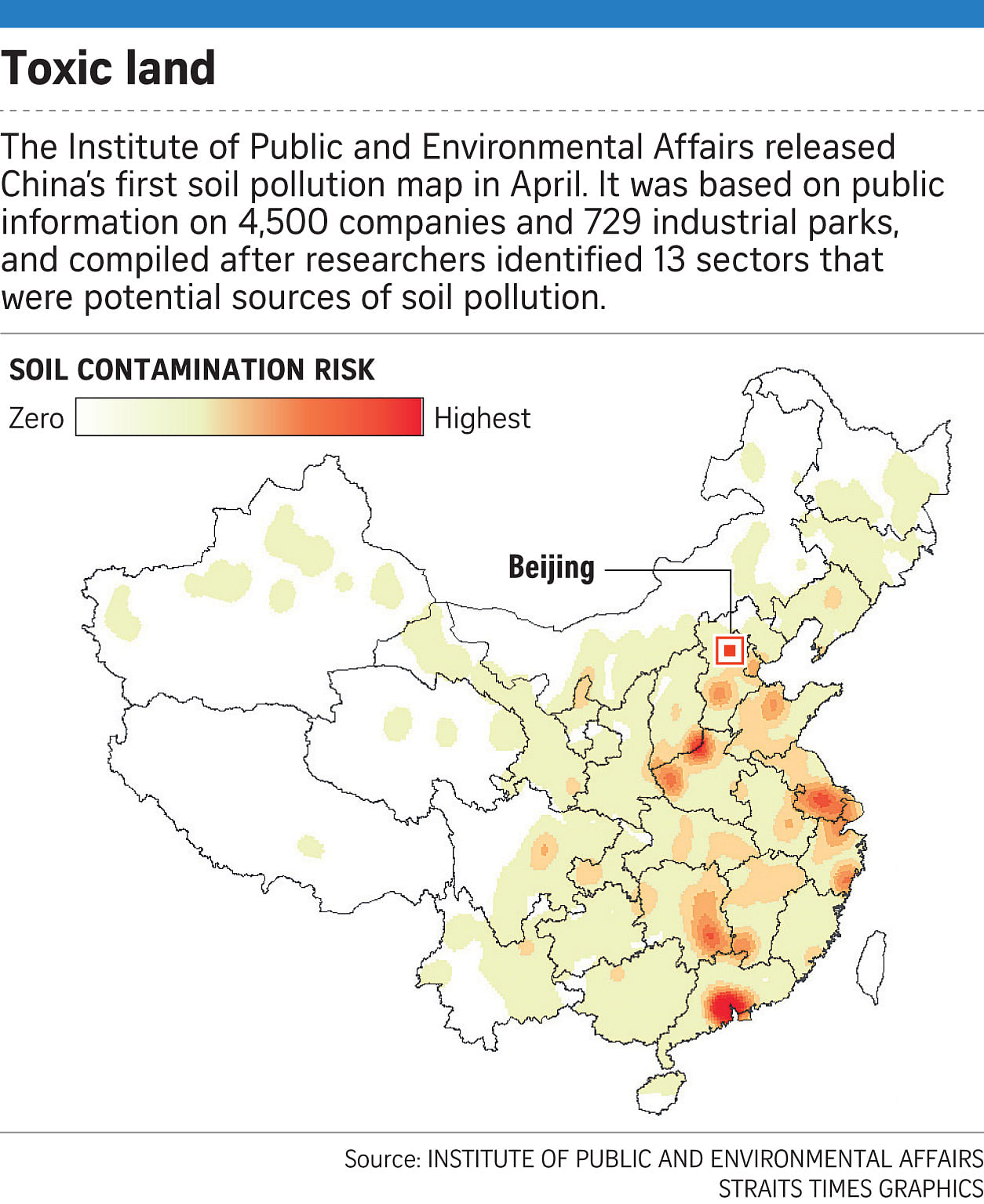BEIJING • First came the rashes, coughs and headaches. Then medical tests showed up signs of bronchitis, even leukaemia.
This was not the welcome that the students of Changzhou Foreign Language School in eastern Jiangsu province were expecting when they moved into their new campus last year.
The shocking news in April that around 500 teenagers had fallen ill due to toxic soil left behind by three chemical plants led to a swift outcry among the public.
It was a stark reminder of the seriousness of China's soil pollution, which environmentalists have warned could be more deadly than the country's more well-publicised water and air pollution.
"The tragedy that has occurred in Changzhou shows just how dangerously lax China's hazardous chemical management is," said Greenpeace East Asia in a statement following the scandal.

According to Chinese non-governmental organisation the Institute of Public and Environmental Affairs, the worst affected regions are likely to be near the Pearl River Delta, the Yangtze River Delta, and certain parts of Hunan and Zhejiang provinces.
This was its conclusion after compiling public information on potential soil pollution sources and then mapping out risky areas. Polluting industries include manufacturers of petrochemicals, fertilisers and pesticides, where emissions and improper waste disposal cause soil and groundwater pollution.
Meanwhile, mining industries can cause soil pollution in provinces that are rich in mineral resources, such as Yunnan, Sichuan, Hunan and Guizhou, as heavy metal pollutants such as arsenic and cadmium are released into the ground.
In Changzhou, the suspected culprits were former pesticide producers. State broadcaster CCTV quoted an anonymous former plant employee as saying that waste water produced used to be dumped outside the plant, while poisonous materials were buried underground without proper treatment.
Reports said that tests on groundwater samples showed readings of chlorobenzene - which can damage the nervous system, liver and kidneys - exceeding safe levels by more than 94,000 times.
A commentary in the Global Times in April said China's rapid economic development has been achieved at the cost of the environment.
"All industrialised nations have gone through similar growing pains, though it certainly does not justify what continues to occur here in China," it said.
Teo Cheng Wee
